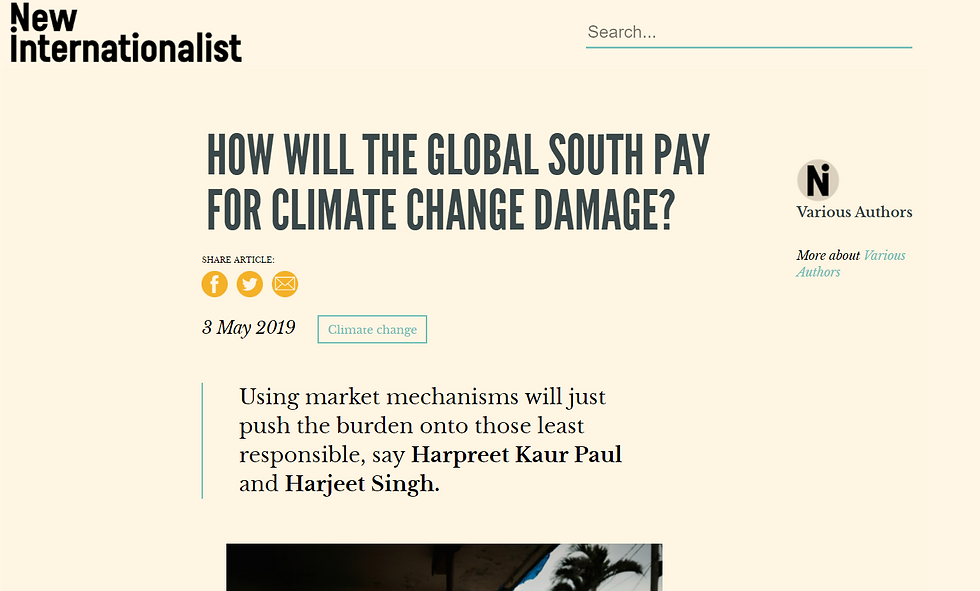The campaign coordinator discusses prospects for the global politics magazine, New Internationalist.
- Oliver Devine

- Oct 26, 2022
- 3 min read
Updated: Sep 23

Print Media Decline Pushes Magazines Online
Most people no longer rely on print-based media for news, and readers are increasingly turning to online platforms.
According to Press Gazette analysis, seven national print magazines have lost their net value in the U.K. in the past five years. Declining circulation and social changes have made many publications commercially unviable.
One magazine, however, is adapting to survive.
Who Is New Internationalist?
New Internationalist is a co-operative magazine founded in 1973 to provide socially conscious journalism. Since then, its business model has shifted, and all copies are now offered as digital editions.
“The main aim is to provide an alternative perspective and worldview to mainstream media in the U.K.,” said campaigns coordinator Ziyad Said-Wardell.
The magazine has collaborated with the United Nations on research papers and was among the first publications to challenge mainstream media narratives.

Making an impact in the world - “we look at development critically… also what sets us apart is that were focused on our journalists being a voice of where they’re from. We consider where people are from and their academic expertise and cultural nuances”.
Making an Impact
“We look at development critically,” Said-Wardell said. “What sets us apart is that we focus on our journalists being a voice of their origins. We consider their academic expertise and cultural nuances.”
The magazine emphasises reporting from the Global South, aiming to deliver stories directly from underrepresented communities.
“We’ve stuck by our values and what we care about—that’s the impact we have made,” Said-Wardell said.
Defining the Global South
While “Global South” can be hard to define, Said-Wardell described it as “not Europe or America, essentially non-Western areas south of the equator.”
He added that many voices in this region are “persecuted, discriminated [against], and underrepresented.” New Internationalist seeks to give them a platform.
Struggles as a Nonprofit
As a nonprofit, the magazine relies on subscriptions, with the highest plan costing £46 annually for print and digital access.
“Any profits that we make get stored away, and we use that to live off,” Said-Wardell said. “We are really struggling at the moment.”
In 2018, the magazine sold shares to readers to prevent closure. Today, about 4,000 readers are co-owners with input on editorial topics. The magazine also seeks additional support through fundraising bids.

Balancing Quality and Costs
Financial pressures have forced tough decisions. One strategy was reducing the magazine from a weekly to a bimonthly edition, resulting in a thicker issue.
New Internationalist continues to use post-consumer recycled paper, which is more costly but aligns with its values.
“The dilemma is always quality over cost,” Said-Wardell said.
Reaching Readers
The magazine promotes itself through university visits and physical stalls. Its core readership is older, a demographic in decline.
“We don’t have a big presence on social media,” Said-Wardell said. “We haven’t got the immediate money to invest in someone who can work full-time on social media promotion.”
Evolving Content
Shifts in media consumption have influenced the magazine’s content.
“We are focused on bigger issues, in depth,” Said-Wardell said. Instead of broad coverage, the magazine now offers more critical analysis of fewer stories.
Other independent outlets, such as Double Down News, have leaned heavily into digital platforms like Instagram and Facebook, offering video essays and visual news reports.
Said-Wardell said New Internationalist is working on similar innovations, including developing a podcast.
“This is just one way we hope to ensure our future,”.




Comments